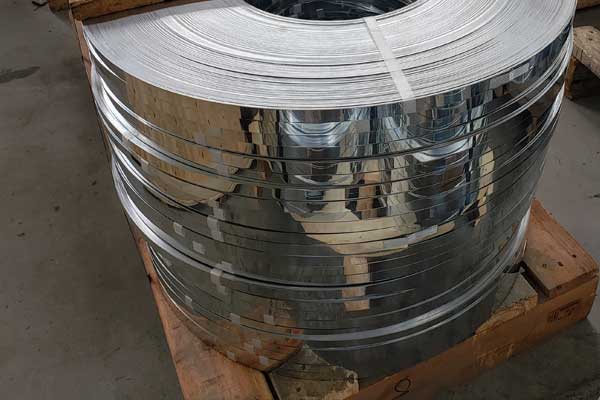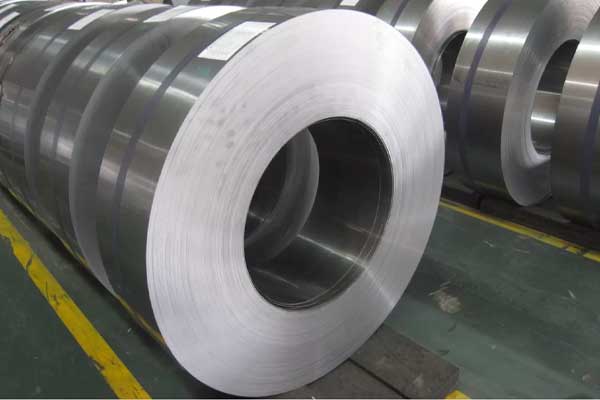Titanium and its alloys are widely recognized for their exceptional strength-to-weight ratio, corrosion resistance, and biocompatibility. When it comes to titanium alloys, titanium zinc alloy emerges as a noteworthy variation that exhibits unique properties and characteristics. In this article, we will delve into a comparative analysis of the strength between titanium zinc alloy and traditional titanium alloys. By exploring their composition, mechanical properties, and applications, we aim to shed light on the strengths and limitations of each alloy and provide insights into their respective suitability for different industrial and technological applications.
Titanium Alloy
Titanium alloys, as a class of materials, have revolutionized various industries due to their remarkable combination of strength, low density, and excellent corrosion resistance. Titanium alloys are primarily composed of titanium along with other elements such as aluminum, vanadium, and iron. These alloying elements impart specific properties to titanium, enhancing its strength and overall performance.
Composition of Titanium Alloy
Titanium alloys are typically composed of the following alloying elements:
- a. Aluminum (Al): Aluminum is added to improve the strength and hardness of titanium alloys. It forms a solid solution with titanium, enhancing its mechanical properties.
- b. Vanadium (V): Vanadium contributes to the strength and heat resistance of titanium alloys. It also helps to stabilize the structure of the alloy, improving its mechanical performance at elevated temperatures.
- c. Iron (Fe): Iron is another common alloying element that improves the strength and corrosion resistance of titanium alloys.
Mechanical Properties of Titanium Alloy
Titanium alloys possess several mechanical properties that make them highly desirable:
- a. Strength: Titanium alloys exhibit excellent strength-to-weight ratios, providing comparable strength to many steels while being significantly lighter.
- b. Ductility: Titanium alloys display good ductility, allowing for easy forming and shaping processes.
- c. Corrosion Resistance: Titanium alloys exhibit exceptional corrosion resistance, making them suitable for applications in aggressive environments such as aerospace, marine, and chemical industries.
- d. Biocompatibility: Titanium alloys are biocompatible, making them ideal for medical and dental implants where compatibility with human tissues is crucial.
Titanium Zinc Alloy
Titanium zinc alloy, also known as titanium zinc intermetallic compound, is a relatively lesser-known alloy that combines the unique properties of titanium and zinc. This alloy is characterized by its distinctive microstructure and mechanical behavior, setting it apart from traditional titanium alloys.
Composition of Titanium Zinc Alloy
Titanium zinc alloy is composed of a mixture of titanium and zinc, typically in equal or near-equal proportions. The intermetallic compound formed exhibits a unique crystalline structure with specific characteristics.
Mechanical Properties of Titanium Zinc Alloy
Titanium zinc alloy possesses notable mechanical properties that differentiate it from titanium alloys:
- a. Strength: Titanium zinc alloy offers a higher strength compared to traditional titanium alloys. The presence of zinc enhances the alloy’s mechanical performance, making it suitable for applications requiring increased strength.
- b. Wear Resistance: Titanium zinc alloy demonstrates improved wear resistance due to the addition of zinc, making it suitable for applications where abrasion and wear are significant factors.
- c. Thermal Stability: Titanium zinc alloy exhibits good thermal stability, maintaining its mechanical properties even at elevated temperatures.
- d. Corrosion Resistance: While titanium zinc alloy is not as corrosion-resistant as traditional titanium alloys, it still offers satisfactory resistance to various corrosive environments.
Comparison of Strength between Titanium Zinc Alloy and Titanium Alloy
To provide a clear understanding of the strength differences between titanium zinc alloy and titanium alloy, let’s compare their properties in a table:
Comparison of Strength between Titanium Zinc Alloy and Titanium Alloy
| Property | Titanium Zinc Alloy | Titanium Alloy |
|---|---|---|
| Strength | Higher strength | Excellent strength |
| Density | Lower density | Lower density |
| Corrosion Resistance | Moderate resistance | Excellent resistance |
| Wear Resistance | Improved wear resistance | Standard wear resistance |
| Applications | Aerospace, Automotive, Marine | Aerospace, Biomedical, Chemical |
Conclusion
In conclusion, both titanium zinc alloy and traditional titanium alloys exhibit remarkable strength and a range of desirable properties. Titanium alloys, with their excellent strength-to-weight ratio and corrosion resistance, have found extensive applications in various industries. On the other hand, titanium zinc alloy offers higher strength and improved wear resistance, making it suitable for specific applications where increased strength and durability are paramount. Understanding the unique characteristics and strengths of each alloy is crucial for selecting the most appropriate material for specific industrial, aerospace, or biomedical applications.

